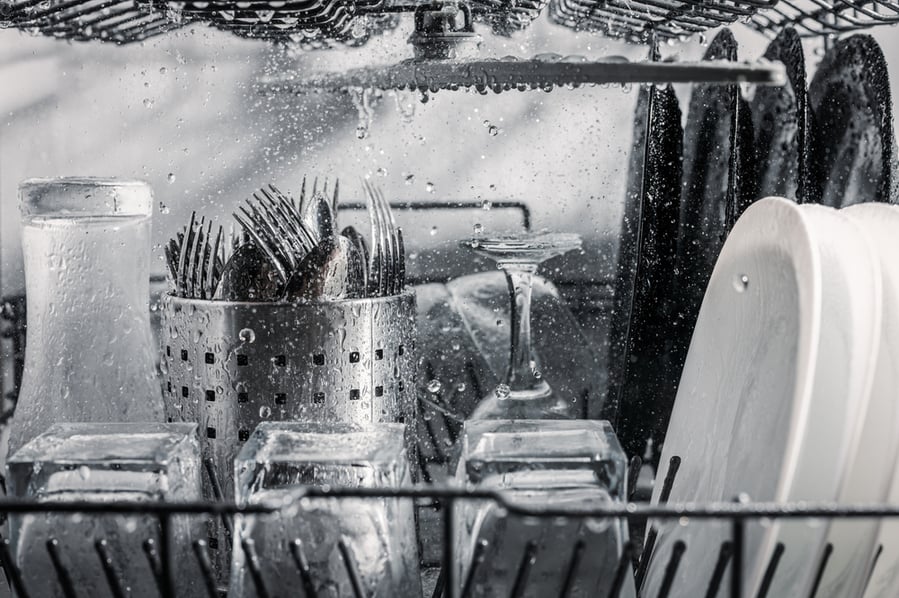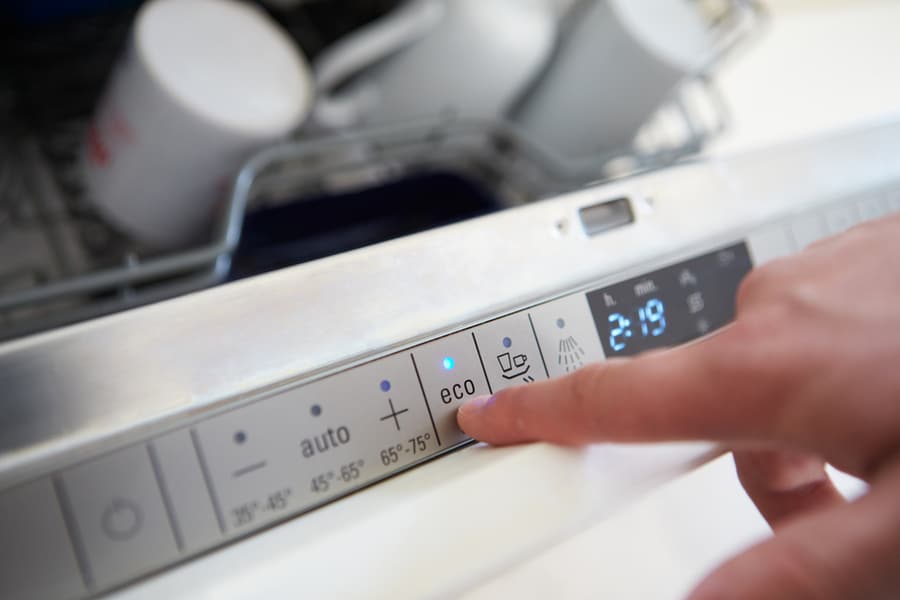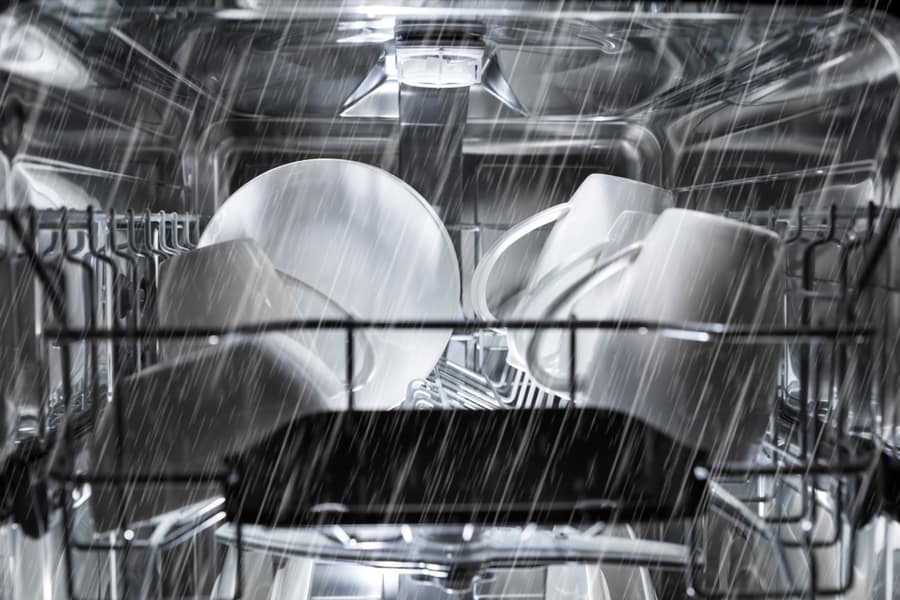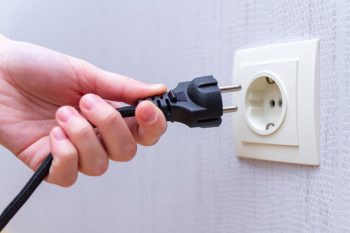
In the interest of lowering the water build, many consumers turn to appliances like dishwashers. But how much do these appliances use? Is there a cheaper, more environmentally friendly way to wash dishes? Unfortunately, the answer isn’t what you might assume.
Not all dishwashers are created equal, but most are more efficient than handwashing dishes. There are lots of variables that determine how much water your dishwasher uses. Some of the most important are:
- Size
- Age
- Settings
However, modern dishwashers typically only use between 3 and 5 gallons of water per cycle.
Keep reading for more on the amount of water dishwashers use, how it compares to handwashing, and how you can lower water usage in your home.
3 Factors That Affect Dishwasher Water Usage
Three main variables impact how much water your dishwasher uses.
1. Size

The size of the dishwasher has the most significant impact on water usage. Larger dishwashers will require more water per cycle than half-size or countertop models. This is because the dishwasher moves high-pressure water over each part of the unit. Therefore, the larger the appliance, the more room there is to cover.
Unlike clothing washers, dishwashers are not equipped to sense how full they are. Therefore, no matter how full the dishwasher is, it will use the same amount of water per cycle.
To increase efficiency and save water, wait until the appliance is fully loaded before running it.
2. Age

Age is another critical factor in determining the water usage of a particular dishwasher. Modern dishwashers use less water than older ones. This is because technological advances and stricter laws have made them more efficient.
To illustrate how drastic this difference is, modern dishwashers use about 1/3 of the water that a dishwasher from the turn of the century did. This is even though they are more thorough and run for longer cycles.
If your dishwasher is over ten years old, it is likely inefficient. Consider upgrading to reduce water usage and save money in the long run.
While shopping for a new dishwasher, ask to see the Energy Guide. Dishwashers must be sold with a fact sheet about their electricity and water usage in many places. When in doubt, consider an Energy Star-certified appliance.
3. Settings

Some dishwashers include eco settings and shorter cycles. These will help conserve water.
Examples of such settings and features include:
- Soil Sensing Technology
- Manual dish soil selection/Several cycle options
- An eco cycle/energy saving cycle
Soil Sensing Technology is a big deal in a dishwasher. This feature monitors the cleanliness of the wastewater from the dishwasher. As soon as the water comes out clean, it moves to the next part of the cycle.
This results in an appliance that always uses the least amount of water necessary without compromising on cleaning quality. While dishwashers with this feature are a bit more pricey, the feature is worth it if you are concerned about water usage.
How Much Water Does Your Dishwasher Use?

Most dishwashers made after 2013 use less than 5 gallons of water per cycle. This allows them to be sold in markets that place federal maximums on water usage, such as the USA.
However, dishwashers made in the nineties and early 2000s can use between 9-14 gallons per cycle.
Summary
Dishwashers have gotten incredibly efficient. Models on the market today can use as little as three gallons of water per cycle. Models from the turn of the century might use about 9 gallons per cycle. This is still much less than handwashing, which takes between 10 and 20.
For maximum water conservation, use a relatively new dishwasher in an eco setting, and try not to run the appliance only halfway full.
Frequently Asked Questions
How Much Water Does Handwashing Dishes Use?
Depending on how efficiently you wash the dishes, handwashing uses between 10 and 20 gallons of water.
Is Handwashing or Dishwashing Better for the Environment?
While originally dishwashers weren’t any better about water usage than handwashing while also using electricity, modern dishwashers are different. Any dishwasher made after 2013 will wash dishes better and more efficiently than you can do by hand.
They are also very energy efficient and only use 206kWh per year on average. Compare this to using a hair dryer for one hour a day, which will use about 300kWh per year.
As long as you have a relatively new appliance, using the dishwasher is better for the environment.












